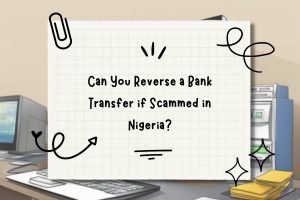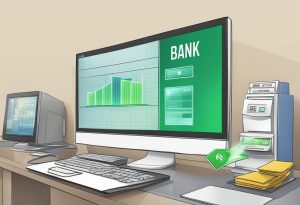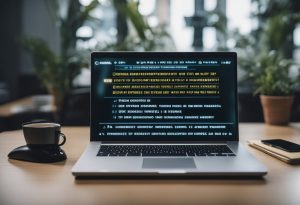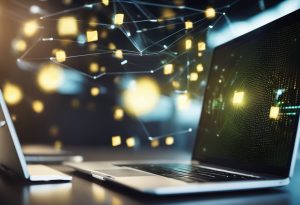If you’re familiar with the world of cybercrime, you’ve probably heard of the Economic and Financial Crimes Commission (EFCC) in Nigeria.
This agency is responsible for investigating and prosecuting financial crimes in the country, including internet fraud, commonly known as “yahoo yahoo.” One of the ways the EFCC tracks down perpetrators of these crimes is by tracing their bank accounts.
Internet fraud encompasses a wide range of deceptive practices aimed at coaxing individuals into parting with their money or personal details.
From phishing and romance scams to business email compromise, the perpetrators often resort to fake identities and bank accounts to carry out their illicit activities.
However, the EFCC has honed sophisticated methods to track down these fraudulent accounts and unmask those responsible.
The EFCC boasts a team of forensic accountants who specialize in meticulously tracing financial transactions.
Armed with an array of tools and techniques, they scrutinize bank records to pinpoint any suspicious activity.
This involves analyzing transaction patterns, mapping the movement of funds, and establishing links between various accounts.
By meticulously following the money trail, the EFCC is adept at building compelling cases against internet fraudsters and ensuring that they face the consequences of their actions.
Types of Internet Fraud
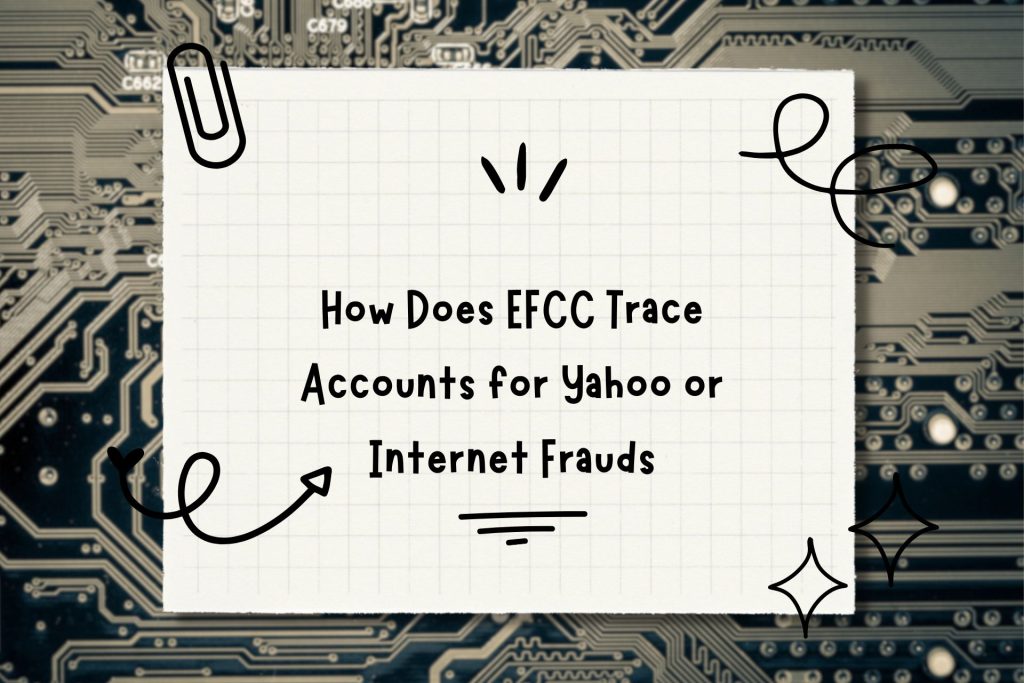
Internet fraud, also known as online fraud or cyber fraud, refers to any fraudulent activity that takes place online. There are several types of internet fraud, including:
- Phishing scams: These scams involve sending fraudulent emails or messages to trick individuals into providing sensitive information such as passwords, credit card details, or bank account information.
- Identity theft: This type of fraud involves stealing someone’s identity and using it to make unauthorized purchases or transactions.
- Online auction fraud: This type of fraud involves individuals bidding on items in an online auction but never receiving the item after making payment.
- Business email compromise: This type of fraud involves criminals impersonating a company’s CEO or other high-level executive to trick employees into transferring money to fraudulent accounts.
EFCC’s Mandate
The Economic and Financial Crimes Commission (EFCC) is a Nigerian law enforcement agency that is responsible for investigating and prosecuting financial crimes, including internet fraud. The agency was established in 2003 and has since been at the forefront of the fight against financial crimes in Nigeria.
The EFCC’s mandate includes investigating and prosecuting individuals and organizations involved in internet fraud, money laundering, and other financial crimes. The agency also works closely with other law enforcement agencies both within and outside Nigeria to track down and bring to justice those involved in internet fraud.
To trace accounts used in internet fraud, the EFCC uses a variety of techniques, including forensic accounting, data analysis, and collaboration with financial institutions. The agency also works closely with international law enforcement agencies to track down and prosecute individuals involved in cross-border internet fraud.
To sum it up, internet fraud poses a significant and escalating threat to individuals and businesses globally. The EFCC’s pivotal role in probing and bringing to justice those implicated in internet fraud within Nigeria has notably contributed to curbing the prevalence of this form of criminal activity in the nation.
EFCC’s Investigative Techniques
- Digital Forensic Analysis
- Banking and Financial Records
- Collaboration with Other Agencies
1. Digital Forensic Analysis
EFCC uses digital forensic analysis to investigate internet fraud. This technique involves the examination and analysis of digital devices such as laptops, phones, and other electronic devices.
The agency has a team of experts who are trained in the use of digital forensic tools to extract information from these devices. The extracted information is then analyzed to identify evidence of fraudulent activities.
2. Banking and Financial Records
EFCC also traces internet fraud by analyzing banking and financial records. The agency has access to the banking records of individuals and companies suspected of fraudulent activities.
These records are analyzed to identify suspicious transactions and patterns of financial activities. The agency also works with financial institutions to identify and track down accounts used for fraudulent activities.
3. Collaboration with Other Agencies
EFCC collaborates with other law enforcement agencies to trace internet fraud. The agency works closely with the Nigerian Police Force, the National Drug Law Enforcement Agency, and the Nigerian Customs Service to investigate and prosecute internet fraudsters.
The agency also works with international law enforcement agencies to track down fraudsters who operate from outside the country.
Legal Framework and Prosecution
Cybercrime Prevention Act
The Cybercrime Prevention Act is a Nigerian law that was enacted in 2015 to combat cybercrime. The Act defines cybercrime as any illegal activity carried out using a computer or other electronic devices. The EFCC uses this act to prosecute individuals involved in internet fraud, phishing scams, and other cybercrimes.
Under the Cybercrime Prevention Act, the EFCC has the power to investigate, arrest, and prosecute individuals suspected of cybercrime. The Act also provides for the seizure and forfeiture of assets acquired through cybercrime.
Money Laundering Prohibition Act
The Money Laundering Prohibition Act is another Nigerian law that the EFCC uses to prosecute individuals involved in internet fraud. This act prohibits the laundering of proceeds from criminal activities, including cybercrime.
The EFCC uses this act to investigate and prosecute individuals who attempt to conceal the proceeds of their criminal activities. The act also provides for the forfeiture of assets acquired through money laundering.
To wrap it up, the EFCC leverages the Cybercrime Prevention Act and the Money Laundering Prohibition Act to bring individuals implicated in internet fraud to justice. These legislative measures furnish the EFCC with the necessary legal infrastructure to thoroughly investigate, apprehend, and prosecute cybercriminals.

